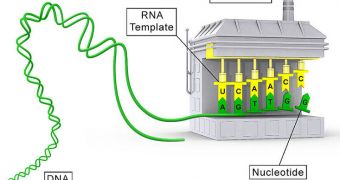In a new series of studies, researchers showed that it's possible to reverse the effects of premature aging by using a technique that reactivates a particular enzyme in charge of protecting special regions on each of our chromosomes.
The molecule is called telomerase, and it's in charge of refurbishing telomeres, structures on the tip of chromosomes that allow for them to divide. Each time these structures split into two identical groups, the telomeres get shorter, and the enzyme needs to step in to replenish them.
If that does not happen, then the telomeres, which get shorter with every chromosomal division, will eventually be depleted, and the cell will become incapable of successfully dividing. Cellular death will then soon be triggered.
But telomerase has the ability to stop, or at least prevent this from happening, investigators say. This was recently proven in the new experiments, Nature News reports.
In the research, a team of experts from the Dana-Farber Cancer Institute and the Harvard Medical School in Boston created transgenic mice that did not produce the enzyme.
These rodents became prematurely decrepit, the group reported, but could be cured from their degrading state once sufficient enzyme amounts were administered to them.
In other words, it would appear that boosting telomerase activity may also have positive consequences on humans as well, especially in preventing some of the disorders that are associated with premature aging, the team says.
Details of the new investigation appear in the November 28 online issue of the top journal Nature. The study was led by cancer geneticist Ronald DePinho, who holds appointments at both Dana-Farber and the Harvard Medical School.
He believes that normal human aging could be addressed by this research as well, if telomerase activity levels are boosted artificially. “This has implications for thinking about telomerase as a serious anti-aging intervention,” he says.
But one thing that researchers need to be wary of is the possibility that boosting telomerase activity would increase the chance of people developing more tumors.
The cellular mechanisms that the enzyme influences play a role in the controlled killing and replacing of cells. Those cells that can escape this process eventually suffer mutations that make them cancerous.
But the new research “gives us a sense that there's a point of return for age-associated disorders,” DePinho concludes.

 14 DAY TRIAL //
14 DAY TRIAL //